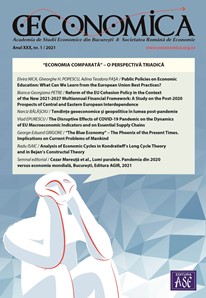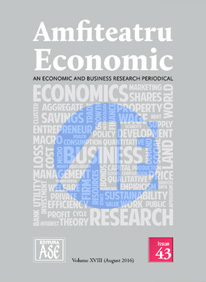
Trimarium – Western Fortress or Meeting Point of Cultures?
Buongiorno, Amici!
Io sono Zoltán.
Io sono un padre. Io sono Ungherese. And…, in the immortal words of Joe Biden: “You know the thing.”
I would like to thank the Machiavelli Institute for inviting me to the Eternal City, and I also want to thank all of you for coming to this important conference. When you walk the streets of Rome, you breathe history. This is the beating heart, the very soul of Western civilization.
Since we are here and I am to speak about the Transatlantic dimensions of the Three Seas Initiative, allow me to open with a story that may be familiar to my colleagues who work in the field of geopolitics. A question I am often asked – usually by children or young adults – goes something like this: “Is America a new Rome?” What I usually say is that Rome was a great power for centuries before it became the mistress of the Mediterranean, ruled the known world for more than four hundred years, and remained a major player for a full millennium after that. The USA is a little over two hundred years old. Yes, they are the strongest power the world has ever seen, militarily and politically, but America is no Rome. They have a ways to go.
Having the distinct honor of speaking in the Italian Parliament, allow me to urge you, dear Italian friends, to join this initiative. The only way in which Italy’s membership in the Three Seas Initiative would complicate matters is by increasing the number of seas beyond three, but I think Greece has already done that.
The Three Seas Initiative is a geopolitical and geoeconomic project – and don’t let politicians tell you otherwise. It is a cooperation of a number of countries, which alone can effect little change, but together represent a significant chunk of the European economy. Very soon – with the completion of defense reforms in a number of countries, most notably Poland –, this cooperation will also boast significant military capabilities. Although Hungary will not be joining the ranks of military powers anytime soon, we too are in the process of modernizing our Defense Forces. So are other nations in the region. We may be late, but the Russian invasion of Ukraine was a wake-up call that everyone heard loud and clear.
Thus, Trimarium is a project that must attract the attention of decision makers in Washington. The world is changing and becoming ever more dangerous. The United States needs allies that can pull their own weight economically and defensively.
Becoming an effective and valuable ally is also important to us. If we were entirely dependent on Washington, we would have no right to demand a say in the most important decisions. But as a powerful friend who contributes valuable capabilities, we become more relevant, perhaps even indispensable. And then our bargaining power increases. That is the way of the world: if you want to be heard, bring something to the table.
With a population of 110 million and a GDP of more than two and a half trillion dollars, the Three Seas countries contribute immensely to the global economy. Were we to live in a peaceful world – which we do not –, the nations of Trimarium would be a great boon to East-West and North-South trade. Even with multiple conflicts brewing, the region will remain an important hub for trade and innovation. A hostile Russia can be bypassed through the Black Sea and the Middle Corridor. With Greece joining the initiatives, ports will be easily accessible for shipping through the Suez Canal.
Let us not deceive ourselves: we have entered a period of difficult transformations. The unipolar moment is indeed over, Mearsheimer is exactly right about that. In a new, more multipolar world, the countries of the Three Seas can contribute immensely to the military deterrence of the Western alliance, which is certain to remain the most influential “pole” for the foreseeable future. As such, the region must be of great interest to any security strategy Washington hopes to devise for the coming decades.
The region will also remain at the center of global great power competition. Russian influence will be less of a threat. With its use of hard power in Ukraine, most of its soft power options in the region have evaporated. But China is already here with the Belt and Road Initiative. And that is a formidable foreign policy tool because it offers a lot of economic and financial benefits.
America seems to rely on portraying the Belt and Road as a threat – which it certainly is –, but earnest warnings fall flat in the face of massive Chinese investment. Ultimately, we must assume that, whatever else they may say, countries tend to act in their short- and mid-term interests, and therefore Washington’s admonitions should be backed up by even more investment in the region.
The United States already has serious investments in Central Europe. About 450 U.S. companies are present in Hungary – mostly in the high-tech sector, which we very much appreciate – and in 2020 they created more jobs in Hungary than investments from any other country. American direct investment in Hungary was about $12 billion. Poland, the Czech Republic and, to some extent, Slovakia are also favored targets for American investors, but more could and should be encouraged to ward off Chinese influence gambits.
In the coming multipolar world – depending on what form it ultimately takes –, the Three Seas Initiative could play an important role in trade and other types of exchanges with other centers of power, should we arrive at a more fluid form of multipolarity. And it could serve as a fortress should rigid blocs emerge that seek conflict rather than peaceful competition and occasional cooperation. Either way, the region will continue to be of strategic importance to the United States.
The US will also remain a central source of security (among other blessings) for the Three Seas. Even if the European Union survives the transition to multipolarity intact and as a force for peace and prosperity, which is far from certain, Russia must at a minimum be deterred. Beyond that, a coalition of Muslim countries might emerge as a power center with global influence, and that may end up too close to our borders for comfort. Moreover, a continental war in Africa is a sad prospect; the flood of migration from the ancient continent would pose an unprecedented threat. The United States could be a key partner in stemming the tide.
“Could be,” but may not be. Here we have to talk about something no realist ever likes to speak about: ideology. Let me be blunt: Hungary loved Pax Americana and we are sorry to see it go. But will never voluntarily join the Woke Empire. I think many other countries will also refuse, especially among the nations of Trimarium, but elsewhere in the world as well. The problem is that many other key American allies would rush into the embrace of a Woke Emperor, and I will not be pointing the fingers… at Canada, Germany, and the usual suspects.
Thus, a fundamentally ideological issue, the cold civil war in the United States, becomes a geopolitical issue: a fault line within the West. One that our enemies and future competitors can and will exploit. In this way, the Church of Woke is a fundamental security threat to the Western Alliance that our liberal colleagues simply refuse to acknowledge. But it is a problem about which we must do something.
I am not here to tell our friends in the US how to solve this fundamentally domestic problem. That is better left to them, for as Churchill said, the Americans will do the right thing once all other avenues have been exhausted. However, just as Churchill fretted, so can we. American progressives are far ahead of conservatives in building networks of influence in Europe and in the nations of the Three Seas. As a conservative, let me tell you that I was less than thrilled about this, even when it meant liberal influence. But it is not Liberalism anymore. The woke sect is not liberal. (If you doubt that, consider “very liberal” Australia and Canada during COVID).
A woke network of influence is a grave national security threat for every country in the Three Seas. In 2022, the Hungarian security services uncovered a secret plot to influence the outcome of that year’s parliamentary elections, financed by progressive groups in America. I am quite convinced that a similar operation was successful in the Czech Republic a year earlier. Something along the same lines is now underway in Slovakia, where elections are scheduled for the end of this month.
This is one of the main reasons why the Center for Fundamental Rights, which I have the honor to represent, has been at the forefront of building a conservative network to fight the woke one, on our continent and beyond. We have made some great strides. CPAC Hungary is a great example, Tucker Carlson’s interview with the Hungarian Prime Minister is an even greater example. And I dare say that this conference also serves the purpose of building friendships and helping each other so that the conservative voice gains strength. Woke influence must be met with common sense influence, and if the fight is anything like fair, we will win. Simply because we are right and they are wrong. And besides, I love me some American influence, just as long as it is conservative.
Grazie mille.
(This is an edited version of a speech Zoltán Koskovics delivered at the conference titled “The Three Seas Initiative and Italy” in Rome on 18th September, 2023.)
Photo source: life._.kor (pexels.com).








